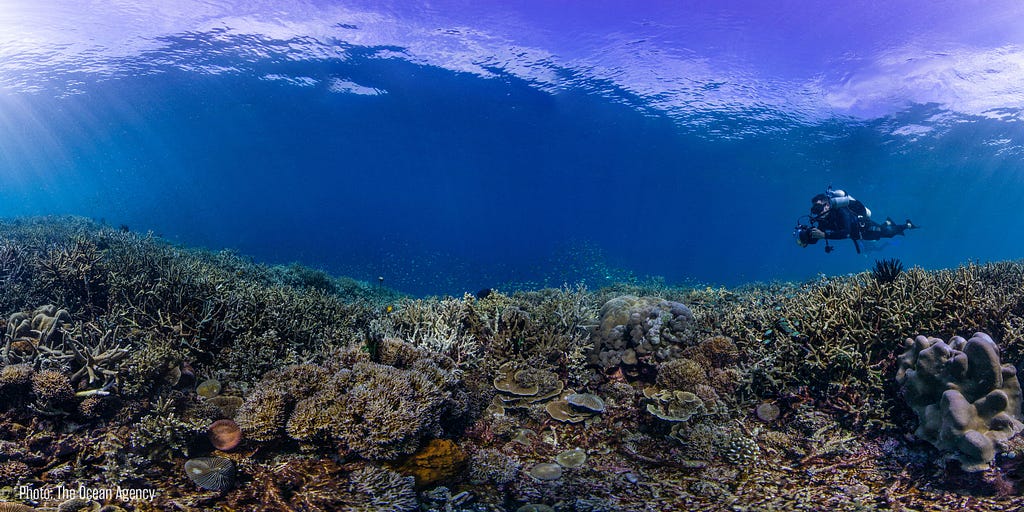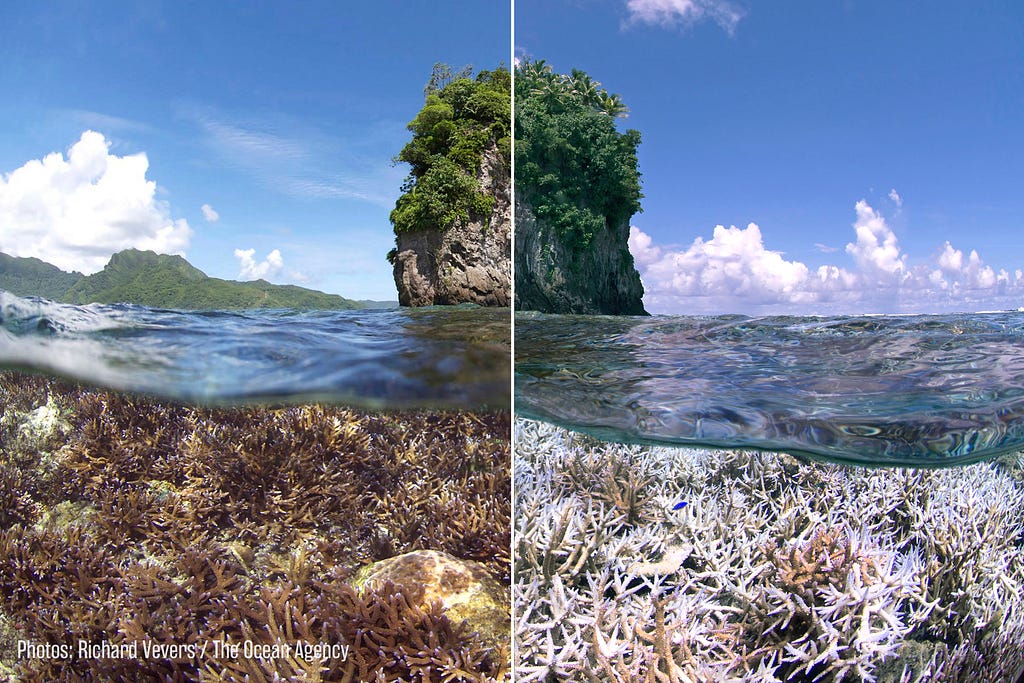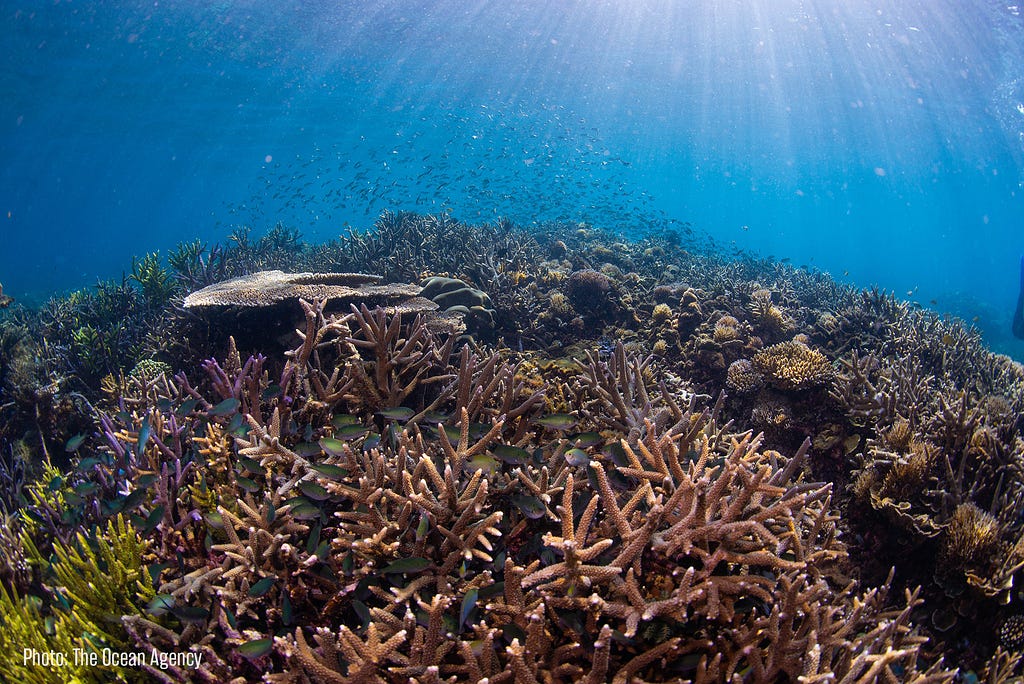Purpose-Driven Businesses Are Acting on Climate Concerns and Creating Hope for the Future

Optimism isn’t a word that’s normally associated with ocean conservation. As someone working in the field, I have witnessed the chasm growing between our slow progress, due to a chronic lack of support, while the problems grow exponentially. However, for the first time in years, I’m starting to get excited about the future — the pessimism is finally being replaced by optimism.
For the last decade as the founder and CEO of The Ocean Agency, I have sat alongside scientists and environmentalists and watched issues such as pollution, overfishing and climate change take their ever-increasing toll on ocean life despite our best efforts to raise the alarm. And I’m just a newcomer—some have been recording the decline for their entire careers. It’s been like watching a runaway train accelerate freely into the distance — a train that supports all life on Earth and is seemingly destined to crash.

Ocean health is one of the biggest issues on the planet (quite literally), yet it has suffered from a chronic lack of support. For every dollar of charitable giving, only an average of 1 cent goes toward saving the environment, and the ocean gets a tiny fraction of that. Only issues that capture the public imagination have any hope of being funded to a meaningful level. So, for years, ocean conservation groups have had to pick their battles carefully and focus on issues such as reducing ocean plastics and saving megafauna rather than some of the bigger, but less popular challenges. This is why the situation felt hopeless.
So what’s changed? The answer is as equally unexpected as the glimmer of optimism. It’s the rise of millennials and Generation Z. These generations have suffered relentless criticism by older generations accusing them of being self-interested and lazy. However, they are now coming of age and, in the case of millennials, rapidly taking control — an unbound force entering the marketplace whose members are proving they’re quite the opposite of self-interested and lazy. They have had enough of business as usual, in fact so much so that nine out of 10 millennials say they would switch the brands they buy in support of a cause. Now more than ever, conservation is becoming a big business opportunity.
Is your business looking for ideas on making a positive environmental impact? Check this free online report from B Lab that compiles articles and resources to help your business become a climate leader. Whether you work at a large company or an agency, get inspired to do more today.

A few months ago, The Ocean Agency was approached by a young company called Lemonade. It was an email that made me realize that the game had changed. Lemonade is a Certified B Corporation that is shaking up the insurance market, using artificial intelligence (AI) to reduce premiums and simplify the insurance process. The company is especially popular with millennials, and doing good and supporting causes is a core part of their business plan. Lemonade was the first insurance company to divest from fossil fuels in the U.S., for example, and it allows customers to donate unused premiums to their cause of choice. Since starting its giveback program in 2017, Lemonade has donated over $840,000 to charities, with the amount growing exponentially with its success. It has helped make the B Corp one of the fastest-growing insurance companies in the world.
Lemonade was looking for causes to support — ideally organizations looking to make meaningful change with a disruptive approach similar to its own. Businesses have the ability to help amplify a cause and, through association, make it popular to support in a way that environmentalists rarely can. As we’ve seen with the ocean plastics issue, business support can popularize causes so they rapidly inspire funding and political action. To me, being approached by Lemonade was a sign that the game has changed. Ocean conservation is becoming a business opportunity that can grow support exponentially not just for the popular issues but for all the environmental work that needs to be done.
It’s not just disruptive companies like Lemonade that are changing the game. They are certainly leading the charge, but companies en masse are starting to see the opportunity of doing good. The Ocean Agency is increasingly approached by companies wanting to get involved in ocean conservation, from the smallest startups to the biggest brands. The challenge for most conservationists now is to embrace this opportunity and not let it slip by. For decades, many environmental activists have perceived business as the archenemy of conservation. Those days are over, and conservationists need to quickly realize they can now have powerful allies to help win fights that previously seemed impossible.
Richard Vevers is the founder and CEO of The Ocean Agency, an international nonprofit organization dedicated to marine conservation.
B the Change gathers and shares the voices from within the movement of people using business as a force for good and the community of Certified B Corporations. The opinions expressed do not necessarily reflect those of the nonprofit B Lab.

A Rising Tide of Ocean Optimism was originally published in B the Change on Medium, where people are continuing the conversation by highlighting and responding to this story.